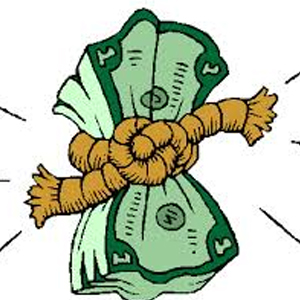 After doing an existing customer opportunity audit with a potential client I got a rather interesting reply.
After doing an existing customer opportunity audit with a potential client I got a rather interesting reply.
Here is the general gist of it:
Client: This would require a substantial shift in our marketing budget which is skewed towards customer acquisition but is definitely a consideration. I will raise it in our next meeting.
I’ve taken some liberties with the reply to protect client details and maintain confidentiality, but what really struck me was this idea of a marketing budget. It’s one of the few places in the world where you can set yourself up and use a system to make money at will.
In business I hate spending money that doesn’t come back with little friends. If I spend a dollar it had better come back, and with more dollars in tow. Or if I am investing in customer acquisition then that dollar had better come back with a new customer and ideally some more dollars.
Here is my reply to the client:-
Your answer does open up some business-philosophy discussion. Firstly the concept of a marketing budget. It automatically implies marketing is an expense and a necessary evil. Kind of like an accountant or a lawyer.
Customer acquisition marketing is about buying an asset i.e. the customer that can be monetized. Kind of the way you buy a rental property. You fork out to buy the house so that you can rent it out for its life time.
Your customers work fairly similarly. You invest in marketing and you get a customer and then they buy repeatedly off of you for years. All well and good. So if you know your cost of customer acquisition (I.e. I spend $500 I get a customer who orders for the first time) then your cost of customer acquisition is $500. And for that $500 you get a steady stream of future orders worth say 5 years of monthly orders. Or over their life time 5 years X 12 months X order size.
We are talking about two different types of marketing.
A newsletter is a way to get customers to stay longer, buy more from you, buy other products from you. (I call this customer retention) So that customer that we just said you paid $500 for goes from being with you for 5 years to say 7 years and for 5 years they buy a product from you at a similar rate they buy the first.
In this case my friend, you would increase your lifetime client value by 240%. (The amount of money a client spends over their lifetime…)
And we are helping you add this ‘bonus’ return from the customer for the measly investment of $74 per customer per year. ($514 over 7 years) you are currently happy to spend the $500 to get a customer how many more lots of $500 do you want to spend now that they are worth 240% more?
“Oh I have to stop I used up my budget…”
I understand that cashflow may be prohibitive in the short term. But if you don’t make the investment now it will be prohibitive in the long term too.
The thing about investing is if you cut your losers and keep your winners you’ll only be invested in proven money making opportunities that will pay off.
Marketing is not a cost it is an investment – when done intelligently and tracked for its performance relative to its costs. In my opinion anyone who does NOT TREAT MARKETING as an investment may as well be gambling. Take your “marketing budget” down to the casino drop your chips on 00 on the roulette table and *spin*.
This is why the concept of a marketing budget rankles me. If you have proven systems for getting a customer at an affordable rate and a way to make money out of your customers once you have them then you should be investing into them at a rate that you cashflow allows. That is the ‘science’ of making money with a business.
“Advertising (and marketing) in some hands has reached the status of a science.” Opening sentence of Scientific Advertising by Claude Hopkins (published in 1923). 90 years ago all of this was figured out – if you operate with a marketing budget catch up – you are way behind the game.